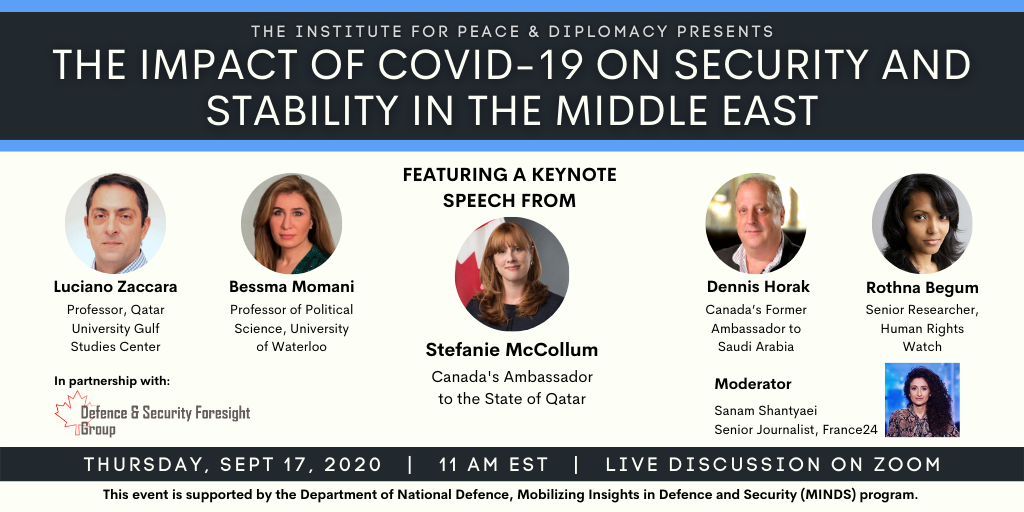
The virtual discussion is scheduled for 11:00 am on Sept 17, 2020 and can be watched through the Zoom link once registered. This panel brings into conversation various perspectives on the security interdependence among Middle Eastern countries, especially GCC states, Iraq, and Iran and explores the opportunities and challenges that the COVID-19 outbreak has created for diplomacy and dialogue in the region.
Following the World Health Organization’s declaration of Coronavirus (COVID-19) as a global pandemic, the UN Secretary-General António Guterres appealed for a global cease-fire, calling on member states to “put armed conflict on lockdown and focus together on the true fight of our lives.”
The global pandemic is impacting the entire world but in vastly different ways. Countries in the Middle East are dealing with grave regional security, socio-economic and political crises while putting in place containment measures to do their parts in “flattening the curve”. The ongoing regional instability and security threats exacerbated by the public health crisis have brought about new opportunities and challenges for transnational humanitarian coordination and cooperation in the region during and in the aftermath of this pandemic.
In a rapidly changing security environment that continues to challenge the Euro-American centric international system, and with the evolving role of China and Russia in the Middle East, we aim to explore the ways in which the ongoing crises can be turned into a humanitarian opportunity by creating and facilitating effective channels for humanitarian trade both during and after Covid-19 pandemic.
This panel is part of a discussion series by the IPD about the impact of COVID-19 on global order and international peace and security. The discussion series is supported by the Department of National Defence’s Mobilizing Insights in Defence and Security (MINDS) program.
Agenda
11:00 - 11:30 am (EST)
We are honored to have , Canadas representative to the State of Qatar, speak as our keynote speaker in conversation with Younes Zangiabadi, the Executive Vice President at the Institute for Peace Diplomacy.
11:30 am (EST)
With experts from Canada and Qatar, this important and timely discussion aims to explore the existing opportunities and challenges to strengthen coordination and cooperation with and between GCC countries, Iraq, and Iran.
Panelists:
- Dennis Horak, Canadas former ambassador to Saudi Arabia
- Bessma Momani, Professor of Political Science at the University of Waterloo
- Luciano Zaccara, Professor in Gulf Politics, Gulf Studies Center, Qatar University
- Rothna Begum, Senior Researcher, Womens Rights Division
Moderated by:
- Sanam Shantyaei, Senior Journalist at France24 host of Middle East Matters
Panelists:
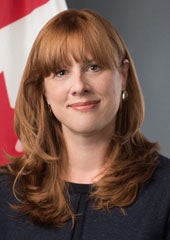 Ambassador Stefanie McCollum
Ambassador Stefanie McCollum

Stefanie McCollum is a career public servant with a variety of management experience working in the Department of National Defense and the Canadian Armed Forces, Secretary of State, Public Works and Government Services Canada and the Canadian Environmental Assessment Agency before joining the Department of Foreign Affairs Canada in 2005.
From 2005-2016 she led both the Management and Consular Services programs in Canada’s offices abroad in San Francisco, Cairo, Bucharest and Sao Paulo. In 2016, she returned to Ottawa to serve as Global Affairs Canada’s Director of Emergency Operations. In this role, she led the Emergency Watch and Response Centre, which operates 24/7 to provide assistance to Canadian citizens in distress abroad, and to monitor and respond to international events and crises that affect Canada’s interest internationally.
In 2017, she added to her portfolio the role of Director of MCO Renewal, which looks to support the Management and Consular Officer (MCO) community of Foreign Service professionals in Global Affairs Canada.
In September of 2018, she was appointed Canada’s Ambassador to the State of Qatar.
She holds a Bachelor of Business Administration and is married with two children.
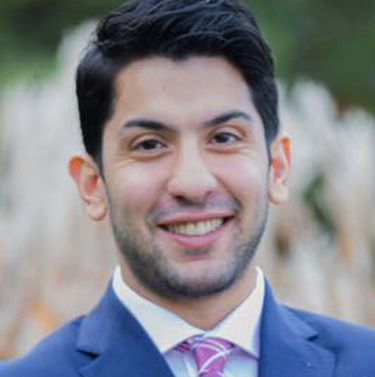 Younes Zangiabadi, Executive Vice President at the Institute for Peace & Diplomacy
Younes Zangiabadi, Executive Vice President at the Institute for Peace & Diplomacy

Younes is the co-founder of The Institute For Peace & Diplomacy (IPD). He is a foreign policy researcher and his research focus is on global security with a particular interest in the Middle East. Younes organizes briefings and prepares policy reports for Canadian parliamentarians and policymakers focused on Canada's foreign policy. He has written about his views in various publications including Huffington Post, Forbes, Atlantic Council’s Iran blog. Younes has been interviewed and referenced by major media outlets (Al-Jazeera, CBC, Washington Examiner, India Times, IRNA, and ...). He is currently a masters candidate of International Affairs at the Graduate Institute in Geneva.
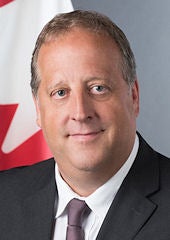 Dennis Horak, Canada’s former ambassador to Saudi Arabia
Dennis Horak, Canada’s former ambassador to Saudi Arabia

Dennis Horak earned an honours bachelor degree in political science from York University in 1983 and got his master’s degree from the London School of Economics in 1984. He joined the Department of External Affairs in 1987. He was assigned to Stockholm in 1989, and Warsaw from 1990-93. After that, he returned to Ottawa to work in the UN Division and the Peacebuilding and Democratic Development Division. He served as ambassador to Saudi Arabia on July 31, 2015 — a second posting since, from 1996 to 1999, he was the mission’s political-economic program manager. Before heading up Riyadh, he directed the Middle East Relations Division at headquarters, a job he took on in 2012 after working as the Canadian head of mission and chargé d’affaires in Tehran.
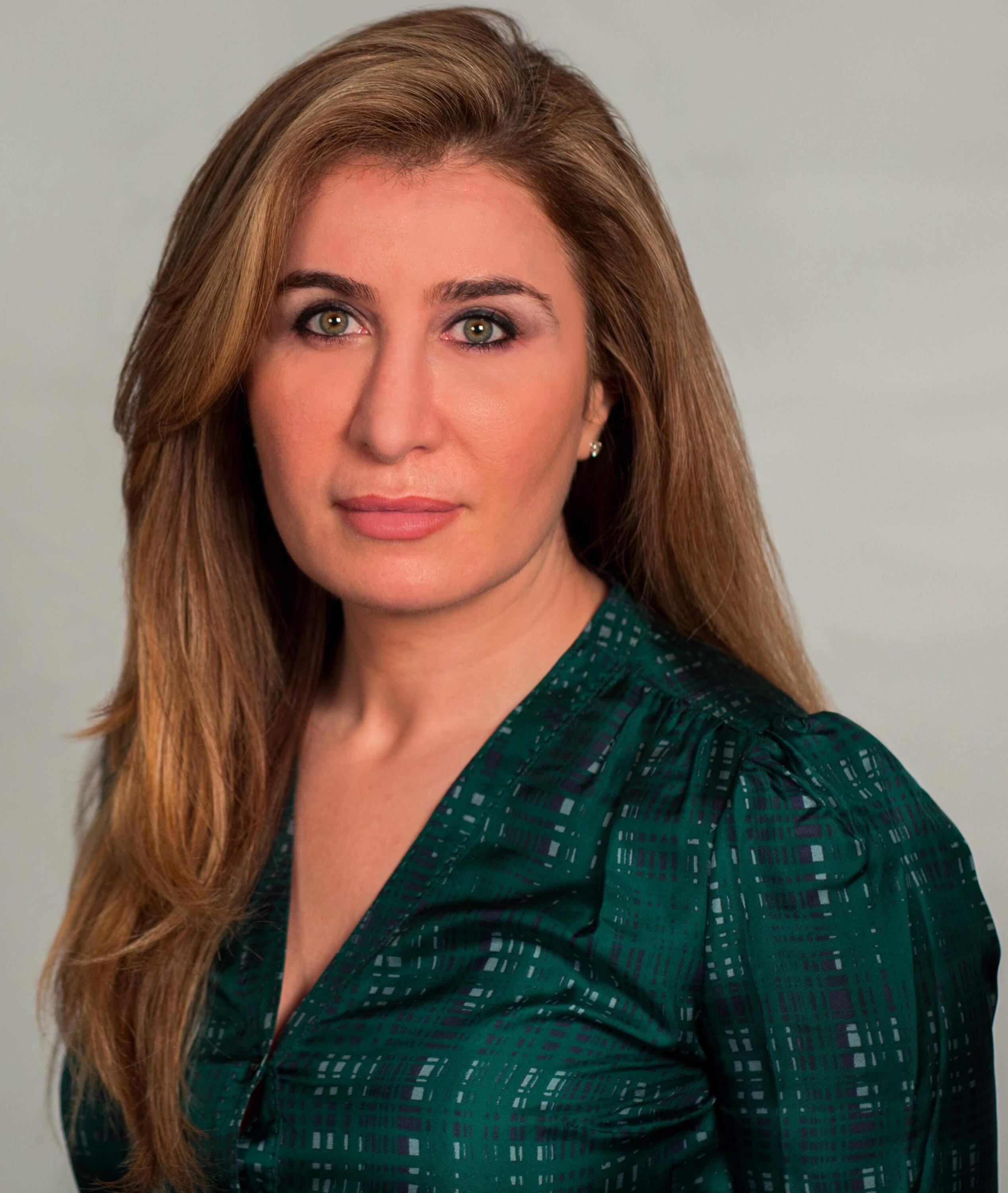 Bessma Momani, Professor of Political Science at the University of Waterloo
Bessma Momani, Professor of Political Science at the University of Waterloo

Dr. Bessma Momani is also a Senior fellow at the Centre for International Governance and Innovation (CIGI), and a Non-Resident Fellow at the Arab Gulf States Institute in Washington, D.C. She was a Non-Resident Senior Fellow at both the Brookings Institution and Stimson Center in Washington, D.C., and a consultant to the International Monetary Fund. She has authored and co-edited ten books and over 80 scholarly, peer reviewed journal articles and book chapters that have examined international affairs, diversity and inclusion, Middle East affairs, and the global economy.
 Luciano Zaccara, Professor in Gulf Politics, Gulf Studies Center, Qatar University
Luciano Zaccara, Professor in Gulf Politics, Gulf Studies Center, Qatar University

Dr. Luciano Zaccara is also a Visiting Assistant Professor at Georgetown University in Qatar and the Director of OPEMAM, Spain. He is a researcher specialized in Iranian Politics, Gulf Politics, International Relations in the Persian Gulf, and Electoral Systems in MENA.
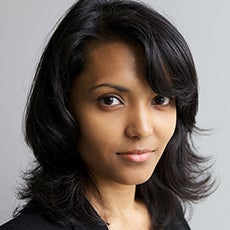 Rothna Begum, Senior Researcher, Women's Rights Division
Rothna Begum, Senior Researcher, Women's Rights Division

Rothna Begum is the women’s rights researcher for the Middle East and North Africa region. She gained expertise on the Gulf primarily specializing in Saudi Arabia, Yemen, Qatar, and Oman, but has also spent some time working on Iran, Iraq, United Arab Emirates, Bahrain and Kuwait. She researched and campaigned on a whole host of human rights issues in such countries including on freedom of expression, association and assembly, counter-terrorism, women’s rights, refugees, migrants and asylum seekers, corporal punishment and the death penalty. She has spent time in the Middle East and North Africa region including undertaking field work in Yemen and Qatar.
Moderator:
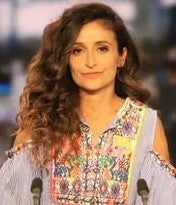 Sanam Shantyaei, Senior Journalist at France24 & host of Middle East Matters
Sanam Shantyaei, Senior Journalist at France24 & host of Middle East Matters

Sanam Shantyaei is a journalist with more than a decade's experience as a foreign correspondent and international news television producer. At France 24, she is the weekly host of Middle East Matters.